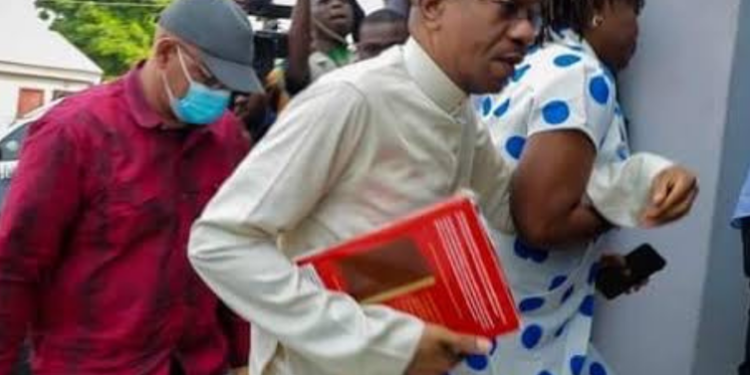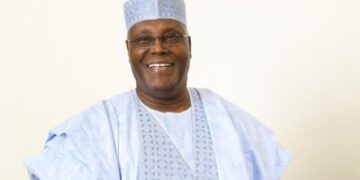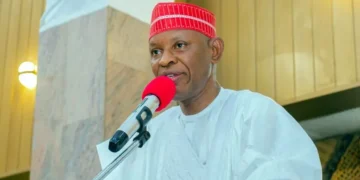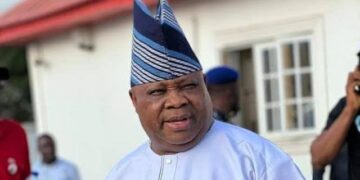The Federal High Court in Lagos has scheduled November 1, 2024, to deliver its ruling on the Economic and Financial Crimes Commission’s (EFCC) application for the final forfeiture of assets linked to former Governor of the Central Bank of Nigeria, Godwin Emefiele.
These assets include a sum of $2.045 million, seven high-value landed properties and shares. Additionally, the court will rule on Emefiele’s formal application for a stay of proceedings on the same day.
This legal matter dates back to August 15, 2024, when the court granted the EFCC temporary custody of the assets in question.
The court directed the anti-corruption agency to publish the order of interim forfeiture, allowing any interested party to come forward and show cause as to why the assets should not be permanently forfeited to the Federal Government of Nigeria.
During the hearing on Friday, EFCC counsel **Rotimi Oyedepo (SAN) moved forward with the application for the final forfeiture of the sum of $2.045 million and share certificates.
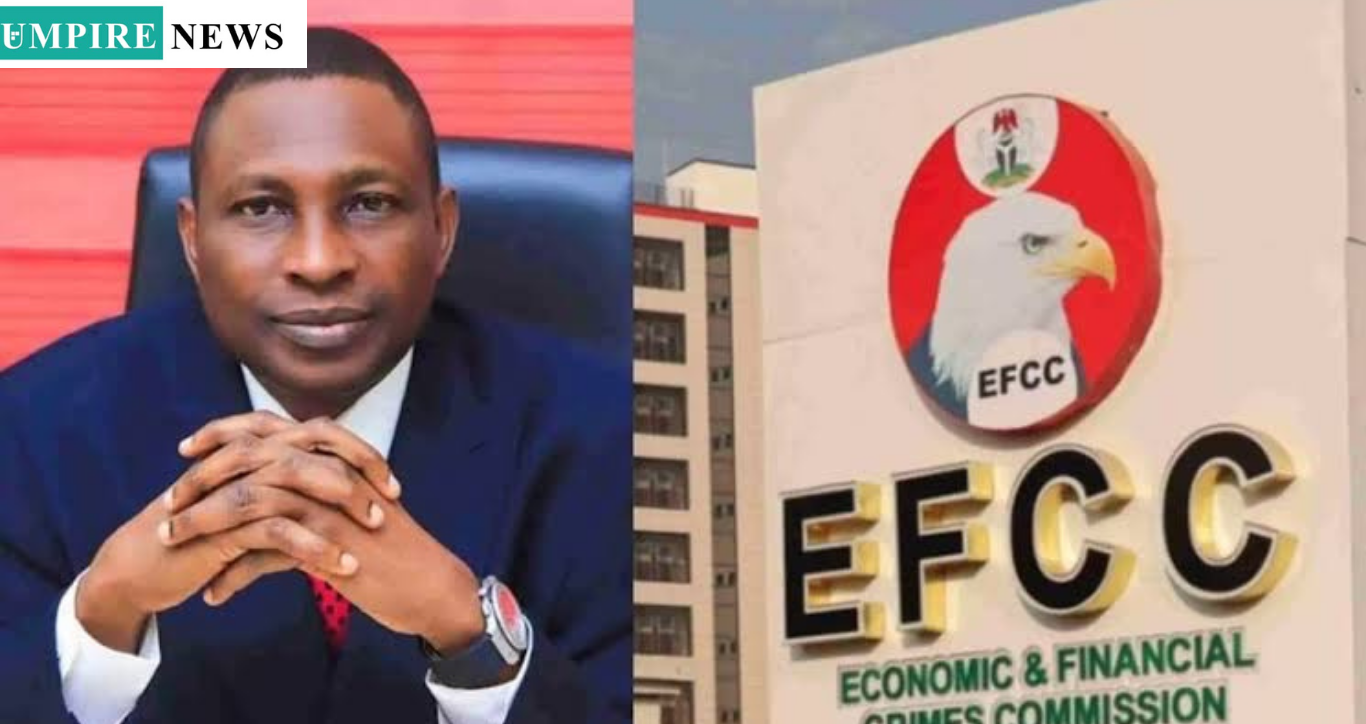
According to Oyedepo, there was no contest from any interested party regarding the shares, which appeared to signal an unchallenged forfeiture process.
However, Olalekan Ojo, counsel representing Emefiele, opposed the forfeiture. He argued that his client had demonstrated enough evidence on a balance of probabilities to show that the court should not grant the EFCC’s request for the final forfeiture of the properties.
Ojo adopted his written address and urged the court to reject the EFCC’s application for forfeiture.
Earlier in the proceedings, Emefiele, through his lawyer, had requested that the court stay further proceedings on the matter pending the outcome of an appeal he had filed before the Court of Appeal.
The former governor had previously appealed against the interim forfeiture order that was granted by the court.
However, Justice Deinde Dipeolu ruled against the request for a stay of proceedings, stating that the right of interested parties to appeal to the Court of Appeal must depend on the decision of the trial court.
Justice Dipeolu made it clear that an appeal usually follows a decision made by the trial court, but in this case, no decision had yet been made regarding the applications filed or the substantive issues of the case.
As a result, the judge dismissed the oral application made by Ojo for a stay of proceedings.
At a prior court session, Ojo had emphasized the need for a stay of proceedings until the Court of Appeal had determined Emefiele’s appeal.
He argued that proceeding with the case while the appeal was still pending could lead to what he termed “judicial rascality.” His argument was that the continuation of the case in the lower court could conflict with the appeal court’s jurisdiction and ruling.
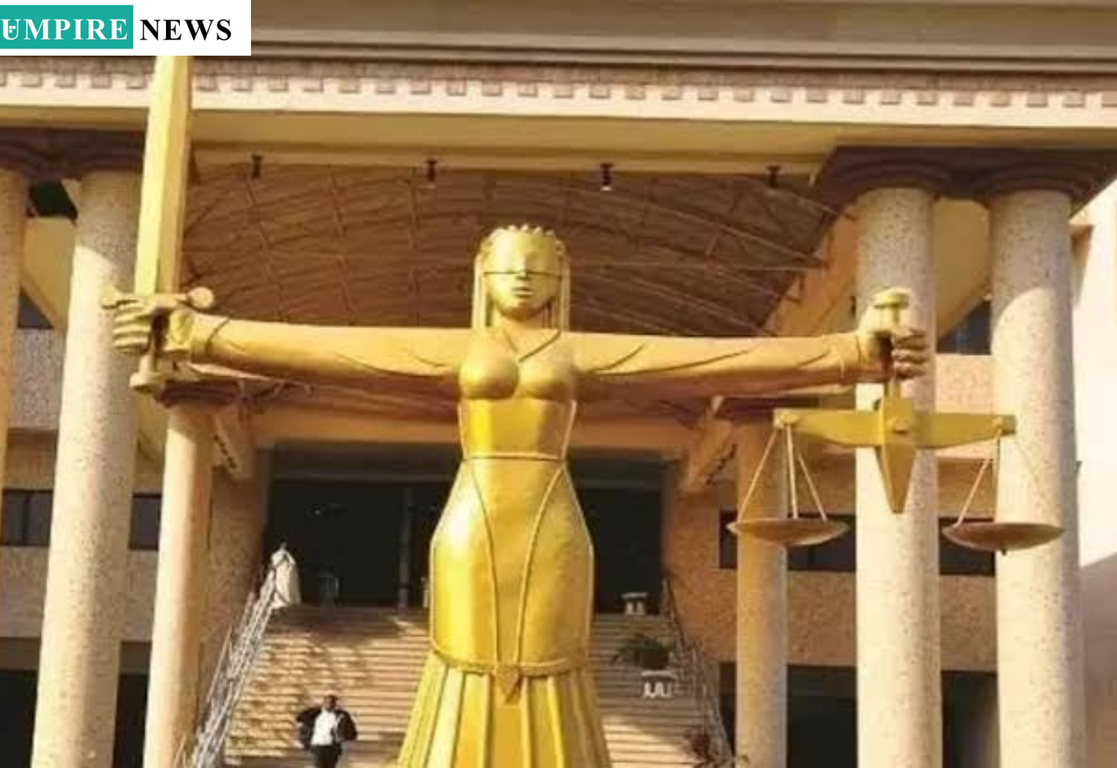
Nevertheless, the EFCC counsel, Rotimi Oyedepo, strongly opposed the request for a stay of proceedings. Oyedepo contended that there was no valid basis for the appeal since no application from Emefiele had been taken or ruled upon that could give rise to an appeal.
He also criticized the former CBN governor’s legal team for hastily filing documents with the Court of Appeal, claiming that the move was premature and lacked proper legal standing.
Oyedepo further stated, “My lord, how can the defendant, in this case, rush to the Court of Appeal because the Federal High Court returned the case file to the administrative judge for reassignment, owing to the fact that the annual vacation of the court ends on the next adjourned date?”
He insisted that the appeal was not properly crystallized, meaning that it could not be used as a basis for halting the current proceedings.
He went on to argue that the defendant’s appeal should not impede the court’s progress because Emefiele had failed to seek the necessary permission from the court before filing an appeal.
According to Oyedepo, the rules of the court require that leave be sought when an appeal is based on a combination of factual and legal grounds. Since Emefiele’s team had not obtained such leave, Oyedepo maintained that the appeal could not stop the current proceedings.
Ultimately, the court will now rule on both the EFCC’s application for final forfeiture and Emefiele’s request for a stay of proceedings on November 1, 2024.
The outcome of these rulings could have implications for Emefiele’s ongoing legal battles, as well as the government’s broader efforts to combat financial crimes and recover assets linked to high-profile individuals.
This case has attracted considerable public attention due to Emefiele’s high-profile role as the former head of Nigeria’s central bank and the large sums of money and valuable properties involved.
If the court grants the EFCC’s application, it would mark a major victory in the government’s fight against corruption and the recovery of assets linked to financial misconduct.
Conversely, if the court sides with Emefiele and refuses the forfeiture, it could set a new precedent for how such cases are handled in the future.
All eyes will be on the Federal High Court on November 1, 2024, as it prepares to make its decision in this high-stakes legal battle.


